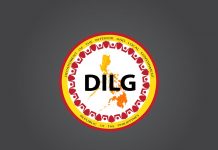The Philippines is looking to improve its “ease of doing business” global ranking as more local government units (LGUs) have streamlined their business permits and licensing process, according to the Department of the Interior and Local Government (DILG).
DILG Officer-in-Charge Catalino S. Cuy says that while the country got a dismal ranking in the ease of doing business report, the government is hopeful that the country’s standing would greatly improve this year because of the increase in the number of LGUs that have enhanced their business permits processes.
“Many LGUs have heeded the call of President Rodrigo Duterte to raise their game and make their localities a haven of business and investment by streamlining their business processes. This is why we are keeping our fingers crossed that we will achieve a huge leap in the said global report,” says Cuy.
In the current International Finance Corporation ease of doing business global ranking, the Philippines is seated in the 113th slot out of 190 countries.
According to Cuy, as of October 2017, 1,174 LGUs have one day-process for business permit renewals, and one to two days to process new business permit applications while 964 LGUs have only three steps or less in their licensing procedures.
In terms of the required maximum of two signatories for business permits and the use of a single unified form, 1,161 LGUs have complied with the former and 1,369 LGUs to the latter.
Earlier, the DILG, Department of Trade and Industry (DTI), and the Department of
Information and Communication Technology (DICT) issued Joint Memorandum Circular (JMC) No. 1, s. 2016 which provides fewer standard BPLS steps namely, Application Filing and Verification, Assessment, and Pay and Claim with a shortened processing time of one to two days for new business permit applications and one day for business permit renewals.
It also states a maximum of two signatories, the Mayor or designated representative and the Business Processing and Licensing Officer or City/Municipal Treasurer, will sign the processing of new and renewal of business permits, among others.
By the book
Cuy says that the government is coming up with the Manual on Implementing the Revised Guidelines in Processing Business Permits and Licenses in the first quarter of 2018 to guide LGUs in doing the process.
“The approach, tools, and advice in the Manual are recommendatory as LGUs can develop alternative approaches to implement different actions that would lead to the same or even better results,” he says.
He said that the Manual is intended to instruct LGUs on how to do the reform in a basic
step-by-step manner rather “it assumes that LGUs are already familiar with the basic steps and requirements necessary to effect reforms in their BPLS system.:
The Manual aims to guide Business Processing and Licensing System (BPLS) Technical
Working Groups of local government units (LGU) in realizing the provision of the DILG – Department of Trade and Industry (DTI) – Department of Information Communication and Technology (DICT) Joint Memorandum Circular (JMC) No. 1, s. 2016.
He says the Manual, which is on its finalization phase, is a reinforcement to the DILG-DTI-DICT JMC No. 1, s. 2016 – a response to President Duterte’s pronouncement in his first State of the Nation Address on reducing requirements and processing time for all government transactions.
Final salvo
In a three-day workshop to finalize the content of the Manual, representatives from various LGUs, partner agencies and non-government agencies such as the USAID, convened to iron out and lobby the Manual anew before its endorsement to the agency-proponents’ head.
Bonagua said that the finalization of the Manual is the last session to critique and update its provisions, in consultation with the participants, to come up with the agreed final draft which hopefully can be released early next year.
“This Manual is a fruit of hard work to make sure that we address the need to streamline the business permits and licensing process to lessen the ease of doing business for our
entrepreneurs,” she said.
Imparting their expertise were Hilda ” Deeda” Gonzales, co-author of the Manual, and Chief Inspector Cesar Patrocinio, Jr. of the Bureau of Fire Protection, both of whom were key contributors not just for the Manual but for the JMC as well.
“We have to understand that more than increasing the revenue of LGUs, the JMC and the Manual, more importantly, deem to help LGUs grow their local economy by fostering the notion that doing business is not a complicated undertaking,” said Gonzales.
The Manual went through a series of successful consultations, test implementations such as in the cities of Batangas, Cagayan de Oro, Iloilo, Zamboanga, Tagbiliran, and Puerto Princesa.
The Manual also presents key principles that lay the foundations for the solutions
integrated into its content such as Customer-Centric Service, One Government, Efficiency, Transparency, and Maximizing Available Technologies to Automate Processes.



